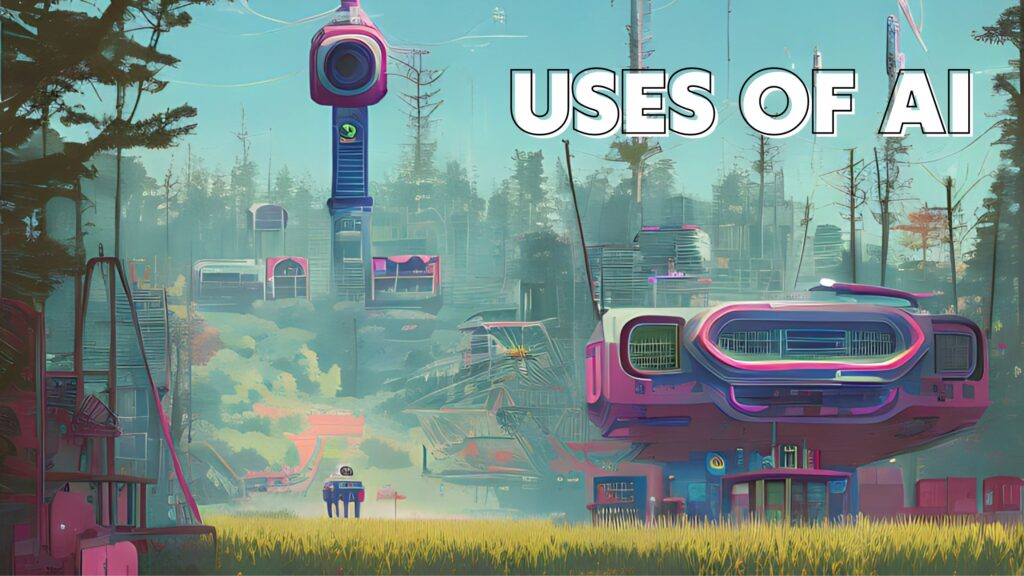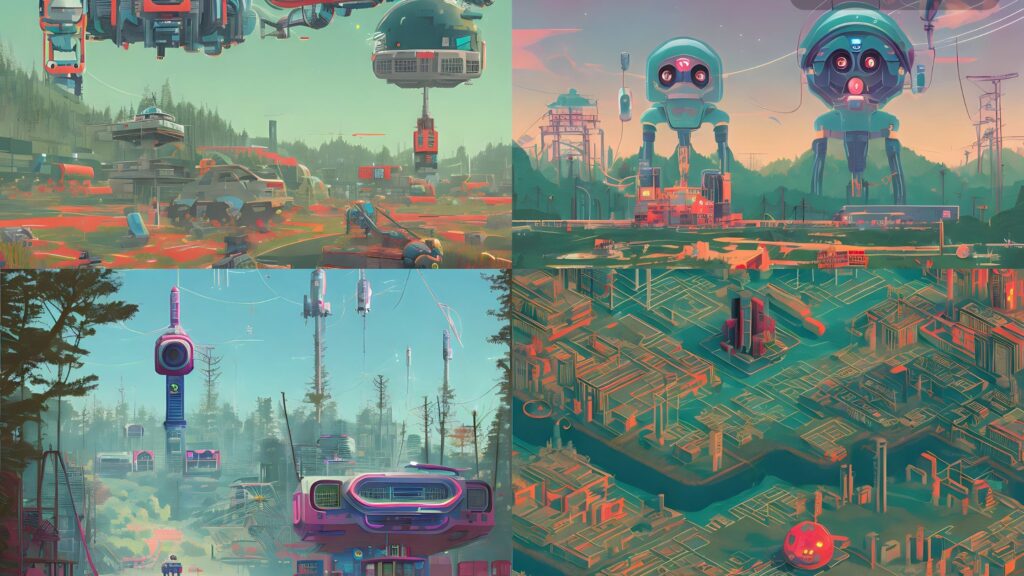What Is Artificial Intelligence? (Work Of AI)
AI is a branch of computer science that focuses on creating intelligent machines that can work and react like humans. AI works by using algorithms to interpret data and make decisions based on that data. AI algorithms are used to identify patterns in data, learn from them, and use these patterns to make decisions and predictions.

AI systems can solve problems, generate new ideas, and create products and services that are tailored to meet the needs of the user. AI can also be used to automate processes and tasks. AI systems can be used to automate tasks such as customer service, data analysis, natural language processing, and more.
AI can also be used to improve decision-making, as AI systems can be programmed to analyze data, identify potential outcomes, and recommend the best course of action.
Examples Of AI
1. Machine Learning: Algorithms that learn from data and produce accurate results without being explicitly programmed.
2. Natural Language Processing: AI algorithms that enable machines to understand and interpret human language.
3. Robotics: Intelligent machines that can sense, reason, plan, and act in the physical world.
4. Computer Vision: Algorithms that can recognize objects, recognize faces, detect edges, and analyze images.
work of ai
5. Speech Recognition: Algorithms that can recognize and convert spoken language into written text.
6. Expert Systems: Algorithms that use rules, heuristics, and data to solve complex problems.
7. Autonomous Agents: Intelligent software programs that autonomously accomplish tasks.
Also Read: How To Send Large Files Online
Uses Of AI

1. Automation: Automation is the use of AI-based technologies to automate tasks that would otherwise require human intervention.
work of ai
2. Natural Language Processing: NLP is the use of AI to process and understand human language.
work of ai
3. Image Recognition: AI can be used for image recognition, which is the ability to identify objects, people, or activities in photos or videos.
4. Robotics: Robotics is the use of AI to control and program robots.
5. Predictive Analytics: Predictive analytics is the use of AI to make predictions about future outcomes.
6. Machine Learning: Machine learning is the use of AI to develop algorithms that can learn from data and make decisions.
work of ai
7. Autonomous Vehicles: Autonomous vehicles are cars, trucks, and other vehicles that use AI to drive themselves.
8. Health Care: AI can be used to diagnose diseases, recommend treatments, and even assist in surgery.
9. Cybersecurity: AI can be used to detect and prevent cyberattacks.
work of ai
Machine Learning

Machine learning is a field of computer science that uses algorithms to learn from data and make predictions or decisions without being explicitly programmed. It involves using computers and statistical techniques to develop models that can recognize patterns and identify relationships in data. Machine learning can be used for the application of ai such as speech recognition, computer vision, natural language processing, and more.
work of ai
AI Future
The future of AI is expected to bring both challenges and opportunities. AI is likely to play a major role in the future of many industries and professions, from healthcare and finance to education, transportation, and manufacturing. AI is already being used to automate mundane tasks, improve customer service, and increase the efficiency of data-driven decision-making. As AI becomes more sophisticated, it is likely to become even more integrated into our lives and the way we live, work, and play. AI’s potential is virtually limitless, and its impact on our lives is likely to be profound.
work of ai
AI Career
A career in AI involves using computers to recognize patterns and learn from data to make decisions or provide solutions to problems. AI professionals use advanced techniques such as machine learning, deep learning, natural language processing, and computer vision to develop intelligent systems that can interact and learn from the environment.
AI careers are in high demand, and the field is expected to continue to grow as AI technology advances. To become an AI professional, you will need to have a strong background in mathematics and computer science. You should also have experience in programming, data analysis, and machine learning algorithms.
work of ai
You may also need to demonstrate experience in building and deploying AI models. Some of the most common AI jobs include machine learning engineers, data scientists, AI developers, and AI research scientists. Depending on the job, you may need to be familiar with programming languages such as Python, R, and Java, as well as machine learning and deep learning frameworks such as TensorFlow, PyTorch, and Keras.

Types OF AI
These are 5 importance of AI
1. Reactive Machines: These types of AI systems have no memory and cannot use past experiences to inform current decisions. Examples include Deep Blue, an AI system that defeated world chess champion, Garry Kasparov, in 1997.
2. Limited Memory: AI systems with limited memory are able to use past experiences to inform current decisions. Examples include self-driving cars that can remember the routes they have taken in the past and use this information to inform how they drive in the present.
work of ai
3. Theory of Mind: AI systems with the theory of mind are able to understand and respond to the beliefs and intentions of other agents. Examples include social robots that can interact with people in meaningful ways.
4. Self-Aware: AI systems that are self-aware are able to form representations of themselves, their environment, and other agents. Examples include robotic systems that can understand and respond to their own behavior.
5. Autonomous Agents: AI systems that are autonomous are able to make decisions and take actions without human intervention. Examples include robots that can explore unknown environments and make decisions based on what they observe.
work of ai

Advantages Of AI
There are many advantages & benefits of Artificial Intelligence and here are some:
1. High Cost: One of the biggest disadvantages of AI is its cost. Developing AI technology requires a large investment of both time and money. This limits its use to only those who can afford it.
2. Job Losses: AI technology has the potential to automate many jobs, which could lead to a decrease in employment opportunities.
work of ai
3. Unpredictable Behavior: AI systems can be unpredictable, and this can lead to unintended consequences. For example, a self-driving car may not recognize a pedestrian in an unexpected situation.
4. Ethical Issues: As AI technology becomes more advanced, ethical questions become more pressing. For example, should an AI system be allowed to make decisions about life-and-death situations?
5. Bias: AI systems can be biased, either intentionally or unintentionally. This can lead to unfair outcomes and discrimination.





